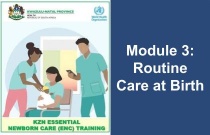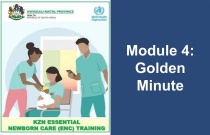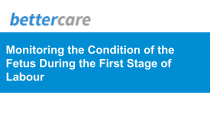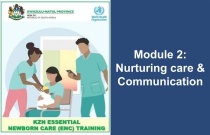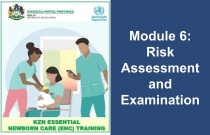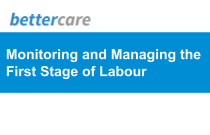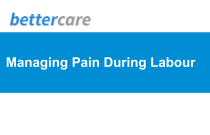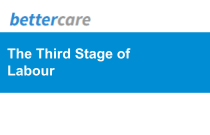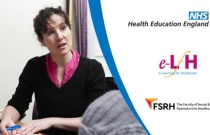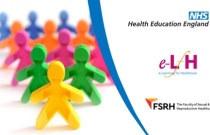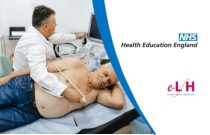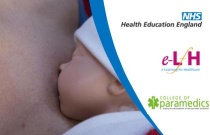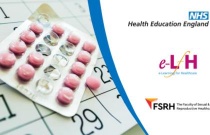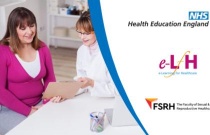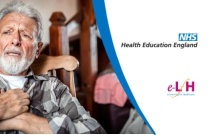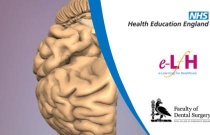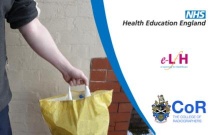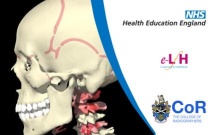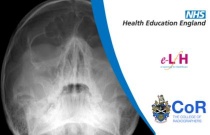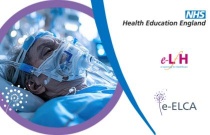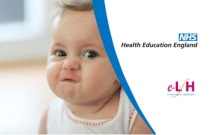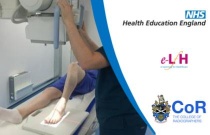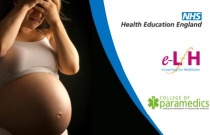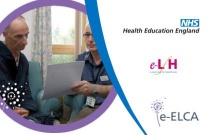Module 3: Routine Care at Birth
It was developed by the KZN Dept of Health MCWH component. Project lead: Ruth Davidge (Diploma in General nursing (community and psychiatry) and midwifery, Certificate in Neonatal Intensive Care)
This module focuses on the routine practices that should be performed for every newborn, including thermal protection, hygiene, and early initiation of breastfeeding.
Module 4: Golden Minute
It was developed by the KZN Dept of Health MCWH component. Project lead: Ruth Davidge (Diploma in General nursing (community and psychiatry) and midwifery, Certificate in Neonatal Intensive Care)
The Golden Minute is the first 60 seconds after birth, which are critical for assessing and assisting newborns who are not breathing. This module provides a step-by-step approach to immediate newborn care and resuscitation.
Monitoring the Condition of the Fetus During the First Stage of Labour
Prof G Theron, Prof H van C de Groot, Dr D Greenfield, Prof D Woods, Ms H Louw, Ms M Petersen, Dr N Rhoda, Prof GS Gebhardt, Prof DR Hall, Dr HA Swart, Dr CA Cluver.
Fetal Monitoring in Labour: Learners will develop competency in monitoring fetal condition during labour, interpreting fetal heart rate patterns, and recognizing signs of distress. The course guides appropriate responses to abnormalities, ensuring timely and effective care.
Module 2: Nurturing Care & Communication
It was developed by the KZN Dept of Health MCWH component. Project lead: Ruth Davidge (Diploma in General nursing (community and psychiatry) and midwifery, Certificate in Neonatal Intensive Care)
This module explores the role of nurturing care in newborn development and emphasizes the importance of caregiver communication and bonding in the early postnatal period.
Module 6: Risk Assessment and Examination
It was developed by the KZN Dept of Health MCWH component. Project lead: Ruth Davidge (Diploma in General nursing (community and psychiatry) and midwifery, Certificate in Neonatal Intensive Care)
This module covers how to assess newborn risk factors and perform comprehensive physical exams to identify early signs of complications requiring further care.
Monitoring and Managing the First Stage of Labour
Prof G Theron, Prof H van C de Groot, Dr D Greenfield, Prof D Woods, Ms H Louw, Ms M Petersen, Dr N Rhoda, Prof GS Gebhardt, Prof DR Hall, Dr HA Swart, Dr CA Cluver.
Managing Poor Progress and Cord Prolapse in Labour: This course teaches learners to monitor and manage labour progression, especially when it deviates from the norm. It covers evaluation techniques, interpreting partograms, and emergency management of complications such as cord prolapse.
Managing Pain During Labour
Prof G Theron, Prof H van C de Groot, Dr D Greenfield, Prof D Woods, Ms H Louw, Ms M Petersen, Dr N Rhoda, Prof GS Gebhardt, Prof DR Hall, Dr HA Swart, Dr CA Cluver.
Pain Relief and Anaesthesia in Labour: This course explores pain management options during labour, including the use of drugs and preparation for general anaesthesia. Learners will understand the benefits, risks, and practical administration of analgesia in childbirth.
The Third Stage of Labour
Prof G Theron, Prof H van C de Groot, Dr D Greenfield, Prof D Woods, Ms H Louw, Ms M Petersen, Dr N Rhoda, Prof GS Gebhardt, Prof DR Hall, Dr HA Swart, Dr CA Cluver.
Third Stage of Labour and Postpartum Haemorrhage: Learners will understand how to manage the third stage of labour, from delivering the placenta to recognizing and responding to postpartum haemorrhage. The course also covers infection prevention protocols for healthcare staff.
Planning Pregnancy
Dr Deepthi Lavu and Dr Michelle Cooper
This session addresses how to conduct a preconception consultation, including lifestyle factors, risks, fertility implications and complications of existing medical conditions that could impact on pregnancy.
Health History and Risk Assessment
Dr Emily Gilbert and Ms Caroline Gumbley
This session looks at the taking of medical history, including sexual history. It also discusses risk assessment for sexually transmitted infections (STIs) and pregnancy.
Heart Valve Disease - Diagnosis and Management in Primary Care
Peter Savill
This session discusses the diagnosis and initial management of heart failure and heart valve disease in primary care in the UK.
Newborn Life Support
Aimee Yarrington
This session aims to provide an understanding of the paramedic's role in dealing with newborn life support.
Partner Notification
Dr Vinod Kumar
The session will explore the principles and practical methods of partner notification (PN) with regard to sexually transmitted infections (STIs).
Early Pregnancy
Dr Michelle Cooper, Dr Deepthi Lavu
This session details the symptoms of early pregnancy, including complications and how to read a pregnancy test appropriately. It also discusses when future pregnancy tests may be required.
Contraceptive Needs of Women with a Raised BMI
Laura Patterson
This session explores the safety and effectiveness of contraception in individuals with a raised BMI.
Heart Valve Disease - Treatment and Follow up
Dr Norman Briffa
This session covers the treatment and follow-up of heart valve disease (HVD).
Endocrine Challenges for the Dental Practitioner
StJohn Crean, Rishi Bhandari
This session will look at the relevance of common endocrine disorders to the delivery of dental care by the dental practitioner.
Image Interpretation - Adult Skeleton (X-ray): Radius and Ulna
Paul O'Riordan
This session will look at injuries related to the radius and ulna. It will focus on identifying anatomy demonstrated on both diagrams and radiographs, and offer examples of radiographic technique. Mechanisms of injury (MOI) will be discussed to develop a knowledge base in clinical presentations. Common fractures, pathologies and....
Image Interpretation - Adult Skeleton (X-ray): The Skull
Dorothy Keane
This session will look at injuries related to the skull. It will focus on identifying anatomy demonstrated on both diagrams and radiographs, and offer examples of radiographic technique. Mechanisms of injury (MOI) will be discussed to develop a knowledge base in clinical presentations. Common fractures, pathologies and normal va....
Image Interpretation - Adult Skeleton (X-ray): Facial Bones - Session 3
Anne Lancaster
A self-assessment exercise based on Image Interpretation - Adult Skeleton (X-ray): Facial Bones - Sessions 1 and 2.
Dying in Intensive Care
Karen Frame, Maribel Manikon
This session uses a case history to examine some of the challenges in providing end of life care in intensive care units (ICUs). Determining the appropriate ceiling of intervention, changing the focus of care from cure to comfort, communication issues, supporting patients and families and pain and symptom control issues will be....
Resuscitation Newborn Level 2
National Health Service
This session meets the statutory and mandatory training requirements and learning outcomes for Resuscitation Newborn Level 2 in the Core Skills Training Framework (England) v1.1.
Image Interpretation - Adult Skeleton (X-ray): Foot - Session 3
Kevin Harvell and Kathy Dewar
A self-evaluation quiz based on Image Interpretation - Adult Skeleton (X-ray): Foot - Sessions 1 and 2.
Pregnancy-induced Hypertension and Pre-eclampsia
Aimee Yarrington
This session aims to provide an understanding of the clinician's role in dealing with pregnancy induced hypertensive disorders.
Assessment of Physical and Cognitive Deterioration in Function
Doiminic Ó Brannagáin
This session provides a framework for the assessment of physical and cognitive deterioration in function in end-of-life care patients.
